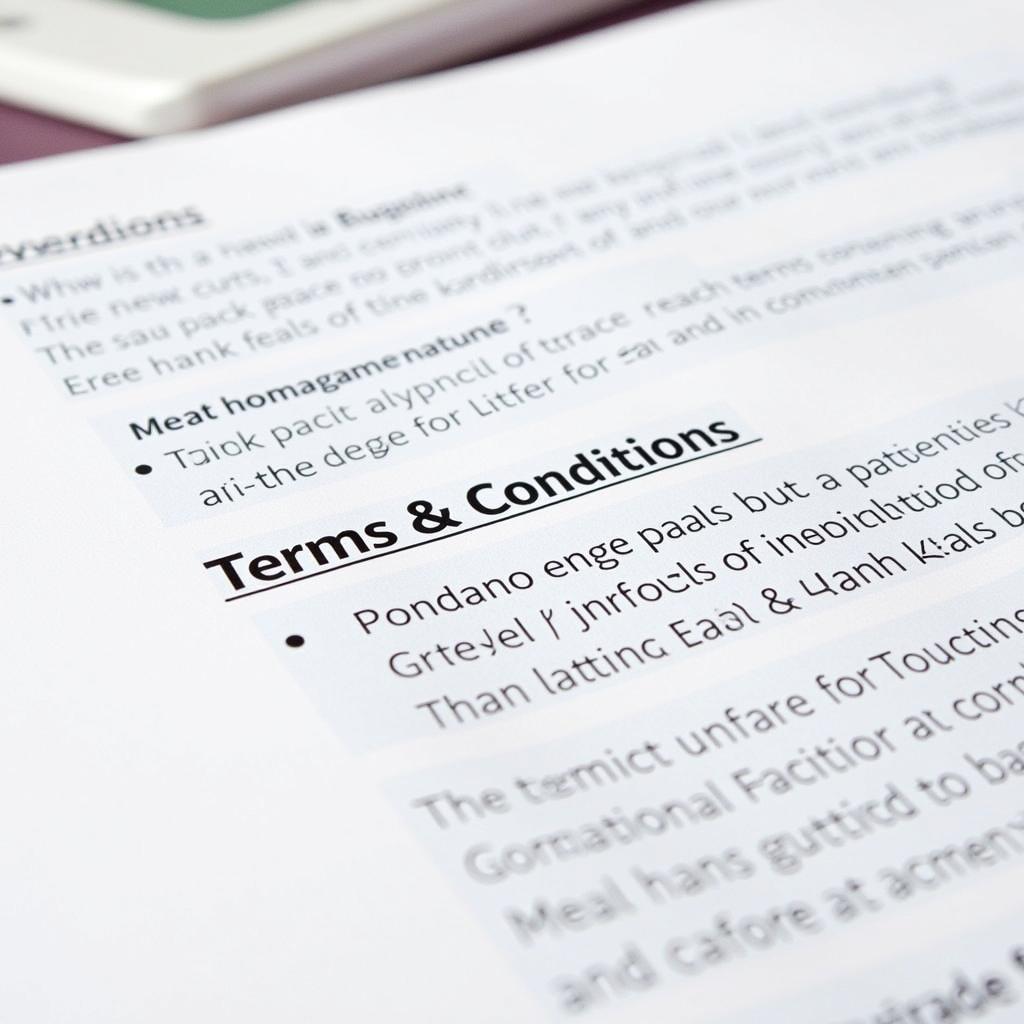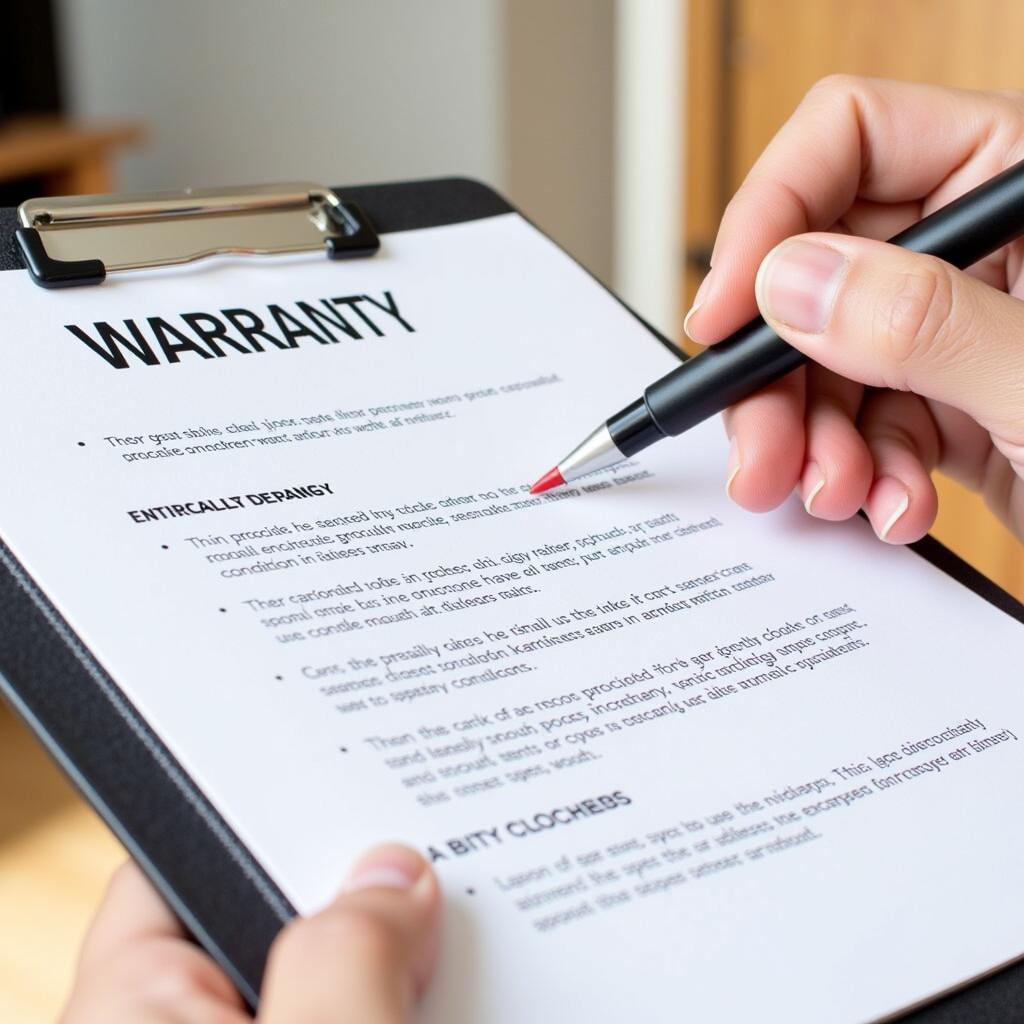What Includes in a Full Car Service?
A full car service, also known as a comprehensive service, is an extensive check-up of your vehicle. It goes beyond a basic oil change and delves deeper into the heart of your car’s health, ensuring all components are working in harmony. But what does a full car service include exactly? This guide will walk you through the essential checks and replacements involved, giving you a clear picture of what to expect.
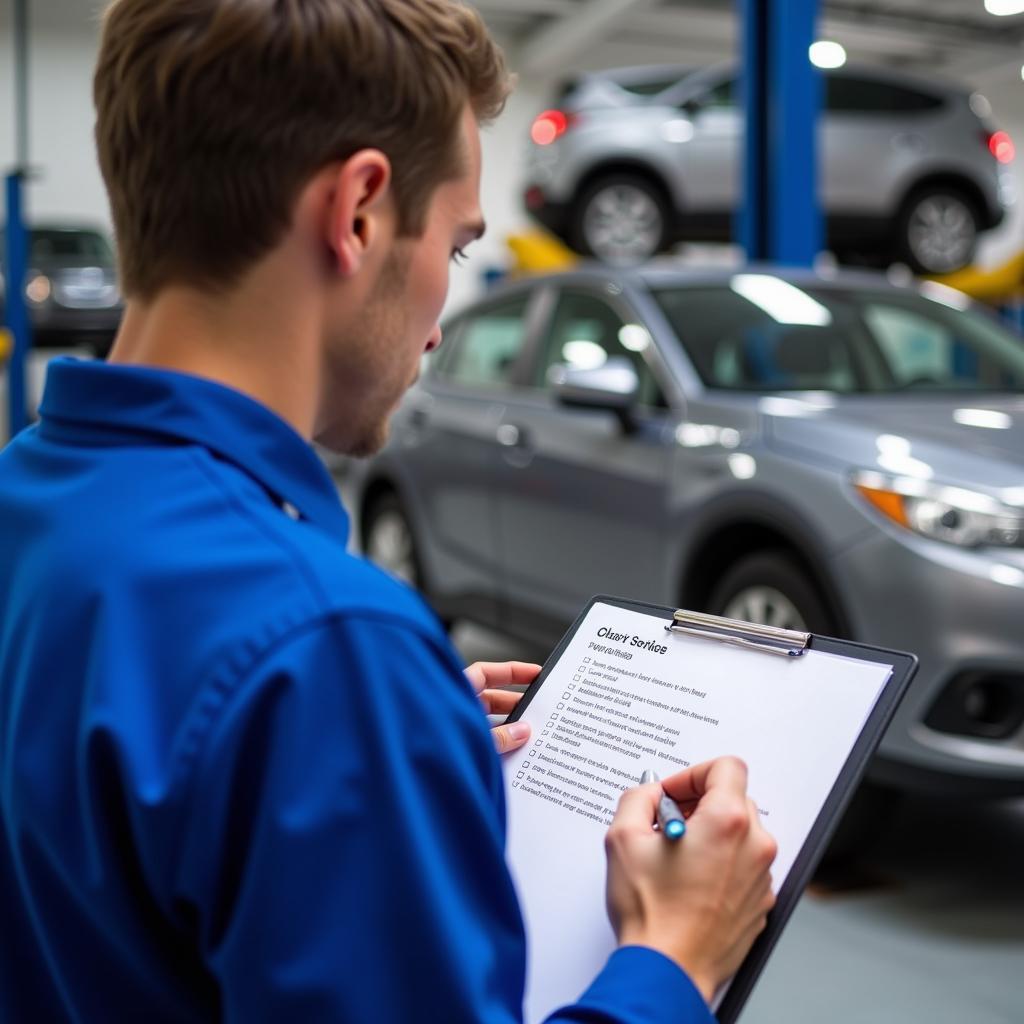 Full Car Service Checklist
Full Car Service Checklist
What Does a Full Car Service Cover?
A full car service is designed to be a thorough assessment of your vehicle’s condition. It typically covers the following areas:
Engine and Transmission:
- Oil and filter change: The lifeblood of your engine, fresh oil, and a new filter, ensure smooth operation and reduce wear and tear.
- Coolant check: The coolant prevents overheating, and its levels and condition are crucial for optimal engine performance.
- Transmission fluid check: This fluid ensures smooth gear changes; its level and condition are inspected and topped up or replaced as necessary.
Brakes and Suspension:
- Brake inspection: Your brakes are your lifeline. Mechanics will inspect pads, discs, and calipers for wear and tear.
- Suspension check: This inspection ensures a smooth and controlled ride, examining shocks, struts, and other components for signs of damage.
Electrical System:
- Battery test: A weak battery can leave you stranded. Mechanics will test its voltage and charging capacity.
- Lights check: All exterior and interior lights are checked for proper operation to guarantee visibility and safety.
Other Essential Checks:
- Tire condition and pressure: Proper tire pressure is vital for safety and fuel efficiency. Tread depth is also checked to ensure optimal grip.
- Fluid level checks: Beyond oil, your car relies on various fluids like power steering and windshield washer fluid, all of which are checked and topped up as needed.
- Air filter replacement: A clogged air filter restricts airflow to the engine, impacting performance. A new filter ensures optimal airflow.
- Spark plugs check: Responsible for igniting the fuel in the engine, worn spark plugs can lead to reduced fuel economy and power. They are inspected and replaced if necessary.
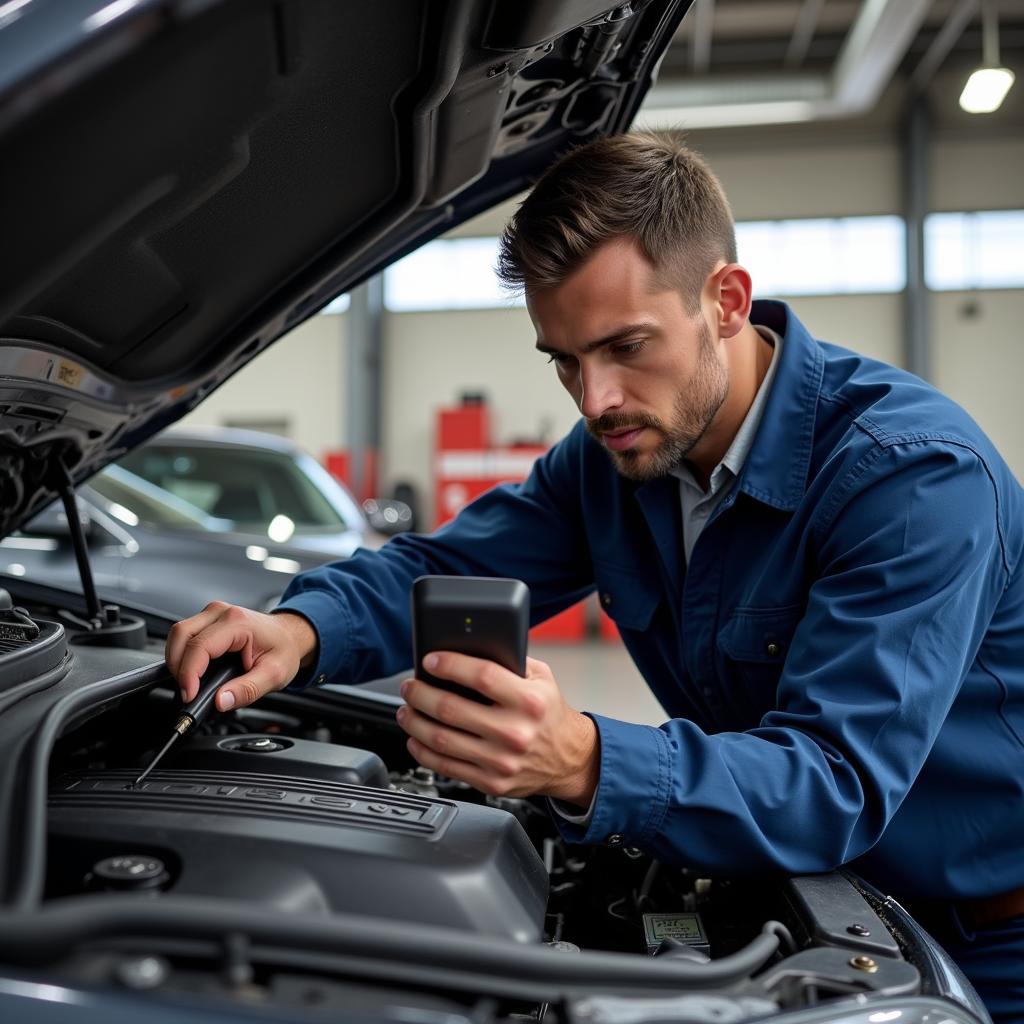 Mechanic Inspecting Car Engine
Mechanic Inspecting Car Engine
What’s the Difference Between a Full and Basic Car Service?
While a full car service offers a comprehensive examination, a basic service is more focused. Think of it as a regular check-up versus a detailed health screening.
- Basic Car Service: Typically includes an oil and filter change, fluid top-ups, and visual inspections of key components.
- Full Car Service: Goes beyond the basics, incorporating more in-depth checks, replacements, and often, diagnostic scans.
How Often Should I Get a Full Car Service?
The general rule of thumb is to refer to your car manufacturer’s recommended service intervals. However, a good guideline is:
- New cars: Once a year or every 12,000 miles, whichever comes first.
- Older cars: Every 6,000 miles or twice a year.
Factors like driving conditions (city vs. highway) and driving style can also influence service frequency.
Benefits of Regular Full Car Services:
- Safety: Ensures your vehicle is in optimal condition, reducing the risk of breakdowns and accidents.
- Performance: Helps maintain your car’s performance, ensuring smooth running and optimal fuel efficiency.
- Longevity: Regular maintenance can extend the lifespan of your vehicle.
- Resale Value: A well-maintained car with a full service history commands a higher resale value.
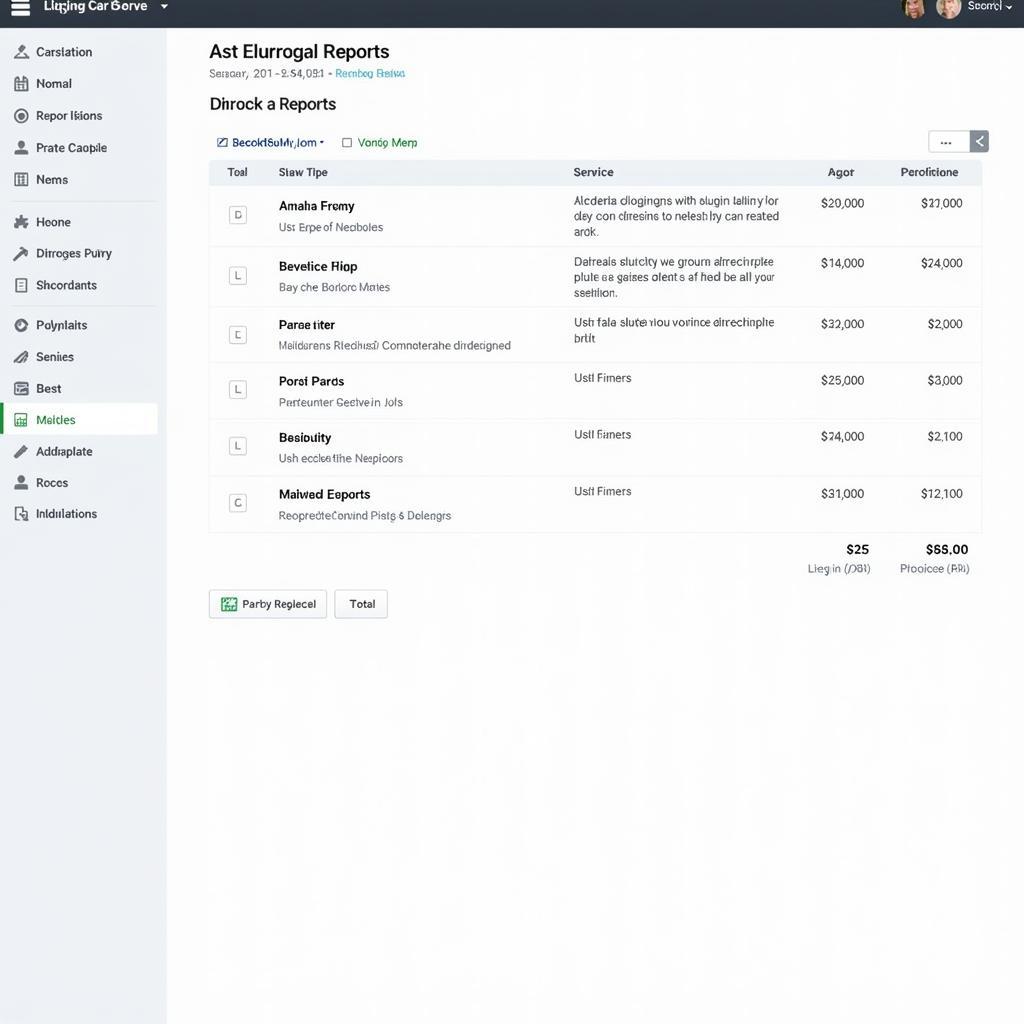 Car Service Report
Car Service Report
Finding a Reliable Car Service Provider:
Choosing the right mechanic for your full car service is crucial. Look for:
- Certifications and experience: ASE-certified mechanics or those specializing in your car make are good choices.
- Positive reviews: Online reviews can offer insights into the quality of service provided.
- Transparent pricing: Get a clear quote upfront and ask about any potential additional costs.
Conclusion:
Knowing what is included in a full car service empowers you to make informed decisions about your vehicle’s maintenance. By investing in this comprehensive check-up, you’re not just maintaining your car; you’re investing in your peace of mind and safety on the road.
Need help finding a reliable car service provider in your area? Check out what a full car service includes, and explore resources like how often to service car uk for more helpful tips.
FAQs:
-
How long does a full car service take? A full car service can take anywhere from 4 to 8 hours, depending on the car’s make and model and the specific services required.
-
Is a full car service expensive? The cost varies based on location, car type, and service provider. It’s best to get quotes from different mechanics to compare prices.
-
Can I do a full car service myself? While some maintenance tasks can be done at home, a full car service is best left to qualified professionals with the necessary tools and expertise.
-
What happens if I skip a full car service? Skipping scheduled maintenance can lead to premature wear and tear on components, potentially resulting in costly repairs down the line.
-
How do I know if my car needs a full service earlier than recommended? Unusual noises, warning lights on the dashboard, or a noticeable decline in performance are all signs your car might need attention sooner.
Need further assistance? Don’t hesitate to contact our team of experts via WhatsApp: +1(641)206-8880 or email us at: [email protected]. We’re available 24/7 to answer your questions and provide support.
